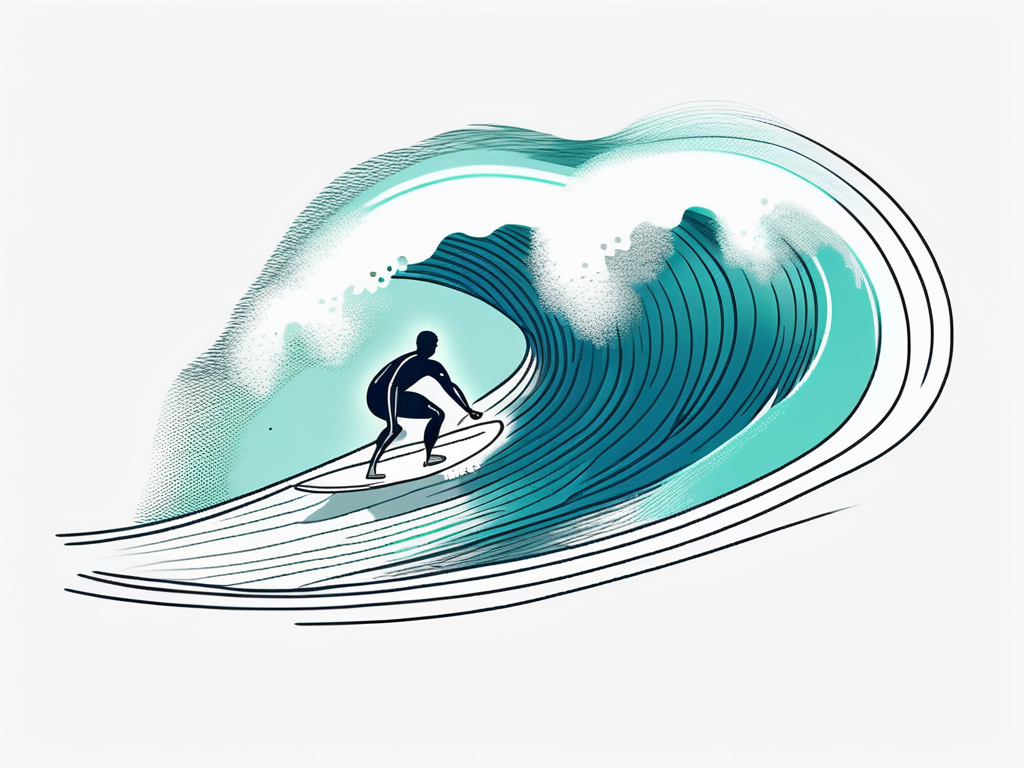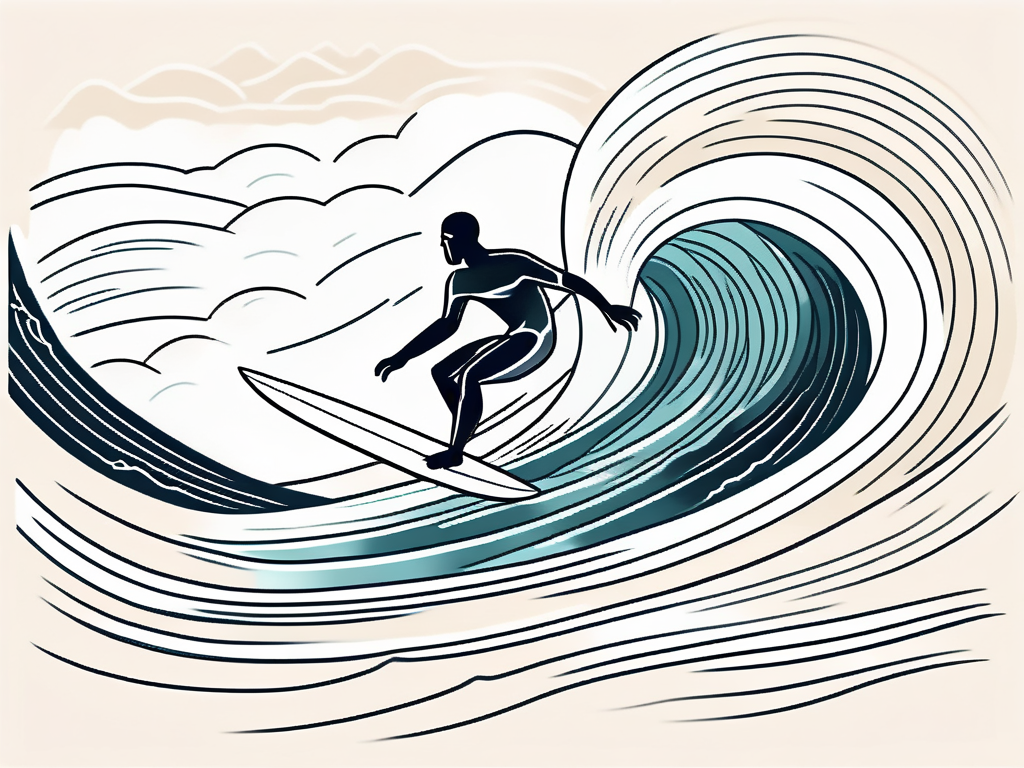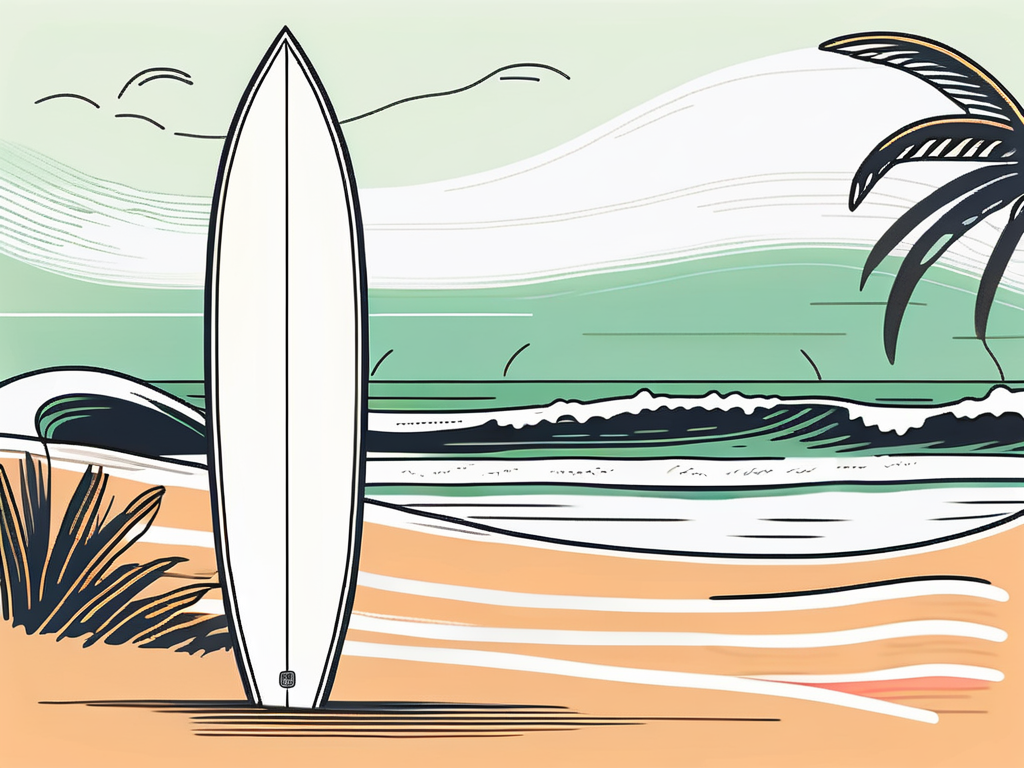Insider Tips for Navigating the Surfing Scene
Surfing is not just a sport; it's a way of life. And like any community, the surfing scene has its own set of unwritten rules and etiquette. By understanding and adhering to these guidelines, you can ensure a positive and respectful experience in the water.

As with any sport, it's essential to respect those who came before you. Show respect to more experienced surfers by giving them right of way when catching waves. This basic surfing etiquette ensures that everyone gets a fair chance to enjoy the waves and minimizes potential collisions.
Another important aspect of mastering the surfing scene is being aware of the local surf culture. Each surf break has its own unique vibe and dynamics. Take the time to observe and understand the dynamics of the lineup before paddling out. Being sensitive to the local surf community will not only earn you respect but also make your surfing experience more enjoyable.
Additionally, always communicate in a friendly and respectful manner with fellow surfers in the water. If you accidentally drop in on someone, apologize and give them the right of way. Building positive relationships in the lineup will create a harmonious atmosphere and make surfing more fun for everyone.
Etiquette Every Surfer Should Know
Respecting fellow surfers and the ocean environment is crucial to maintaining a positive surfing community. Here are some essential guidelines to follow:
- Wait your turn: Practice patience and wait for your turn to catch a wave.
- Give right of way: Yield to the surfer already riding a wave or closest to the peak.
- Don't snake: Avoid cutting in front of other surfers to steal their wave.
- Apologize sincerely: If you accidentally drop in on someone, apologize immediately.
- Keep it clean: Respect the beach and ocean by picking up any trash you see and disposing of it properly.
How to Respect the Ocean While Surfing
Surfers have a unique relationship with the ocean, and it's essential to be mindful of the environment that provides us with endless waves to enjoy. Here are some tips to show respect to the ocean:
- Avoid littering: Never discard any trash or waste into the ocean.
- Use eco-friendly products: Opt for environmentally friendly surf wax and sunscreen.
- Protect marine life: Do not touch or disturb marine animals or their habitats.
- Practice responsible surfing: Do not paddle out in areas where you may damage delicate coral reefs.
But there's more to the surfing scene than just etiquette and environmental responsibility. It's a world filled with incredible stories and fascinating history. Did you know that surfing dates back thousands of years? Ancient Polynesians were the first to ride waves, using wooden boards carved from local trees. They saw surfing as a spiritual practice, connecting them to the ocean and the gods.
Surfing has come a long way since those early days. Today, it's a global phenomenon, with surfers from all corners of the world chasing the perfect wave. From the iconic breaks of Hawaii's North Shore to the hidden gems of Indonesia, surfers are constantly seeking new adventures and pushing the boundaries of what's possible on a wave.
But it's not just about the waves themselves. Surfing has a rich culture that extends beyond the water. It's a lifestyle that embraces freedom, creativity, and a deep connection with nature. Surfers are often drawn to coastal communities, where they can immerse themselves in the surf culture and live a life that revolves around the ocean.
Exploring the Risks of Surfing
While surfing can be thrilling and exhilarating, it's important to be aware of the potential dangers involved. Understanding these risks and taking appropriate precautions can help mitigate any potential harm.

Surfing is not just a sport; it's a way of life for many enthusiasts who are drawn to the beauty and power of the ocean. However, beneath the surface of this seemingly carefree activity lies a series of risks that demand respect and preparation. From the moment a surfer paddles out into the lineup, they are entering a dynamic and ever-changing environment that requires constant vigilance and skill to navigate safely.
Understanding the Potential Dangers of Surfing
Surfing in powerful waves poses inherent risks, including wipeouts, strong currents, and the potential for collision with other surfers or objects in the water. It's crucial to remain alert and focused while in the lineup to reduce the likelihood of accidents.
One of the most significant dangers surfers face is the power of the ocean itself. Waves can reach towering heights, creating a formidable force that can easily overpower even the most experienced surfers. In addition to the raw power of the waves, surfers must also contend with hidden hazards beneath the surface, such as rocks, reefs, and marine life. A momentary lapse in concentration can result in serious injury or worse, making it essential for surfers to approach the ocean with a healthy dose of caution and respect.
Safety Precautions Every Surfer Should Take
Surfers should always prioritize their safety by taking the following precautions:
- Wear appropriate protective gear, such as a leash and rashguard, to minimize the risk of injuries.
- Check surf conditions before heading out to ensure they are suitable for your skill level.
- Know your limits and surf within your ability, gradually increasing the difficulty as you progress.
- Never surf alone and always have a buddy system in place.
The Vital Importance of Surfing Safety Guidelines
Why Following Safety Rules Can Save Lives

Surfing may be an exhilarating sport, but it comes with risks. By following safety guidelines, you can significantly reduce the chances of accidents and injuries. Safety rules exist to protect you and others in the water.
When it comes to surfing safety, knowledge is power. Understanding the potential dangers that come with riding the waves is the first step in ensuring a safe and enjoyable experience. From rip currents to collisions with other surfers, being aware of these risks can help you navigate the waters more effectively.
Essential Safety Tips for Surfers
To ensure a safe and enjoyable surfing experience, consider implementing these safety tips:
- Stay hydrated and properly nourished to maintain your energy levels.
- Stay updated on current weather conditions and potential hazards.
- Stretch and warm up before hitting the water to avoid muscle strains.
- Practice proper surfing techniques, including paddling, popping up, and turning.
Additionally, investing in quality surfing equipment, such as a well-fitted leash and a board appropriate for your skill level, can enhance your safety in the water. Being prepared with the right gear can make a significant difference in how you handle unexpected situations while surfing.
In conclusion, mastering surfing etiquette is crucial for an enjoyable experience in the lineup. By following the unwritten rules and guidelines, respecting fellow surfers, and protecting the ocean environment, you'll not only become a more respected member of the surfing community but also contribute to the preservation of this incredible sport for future generations.






